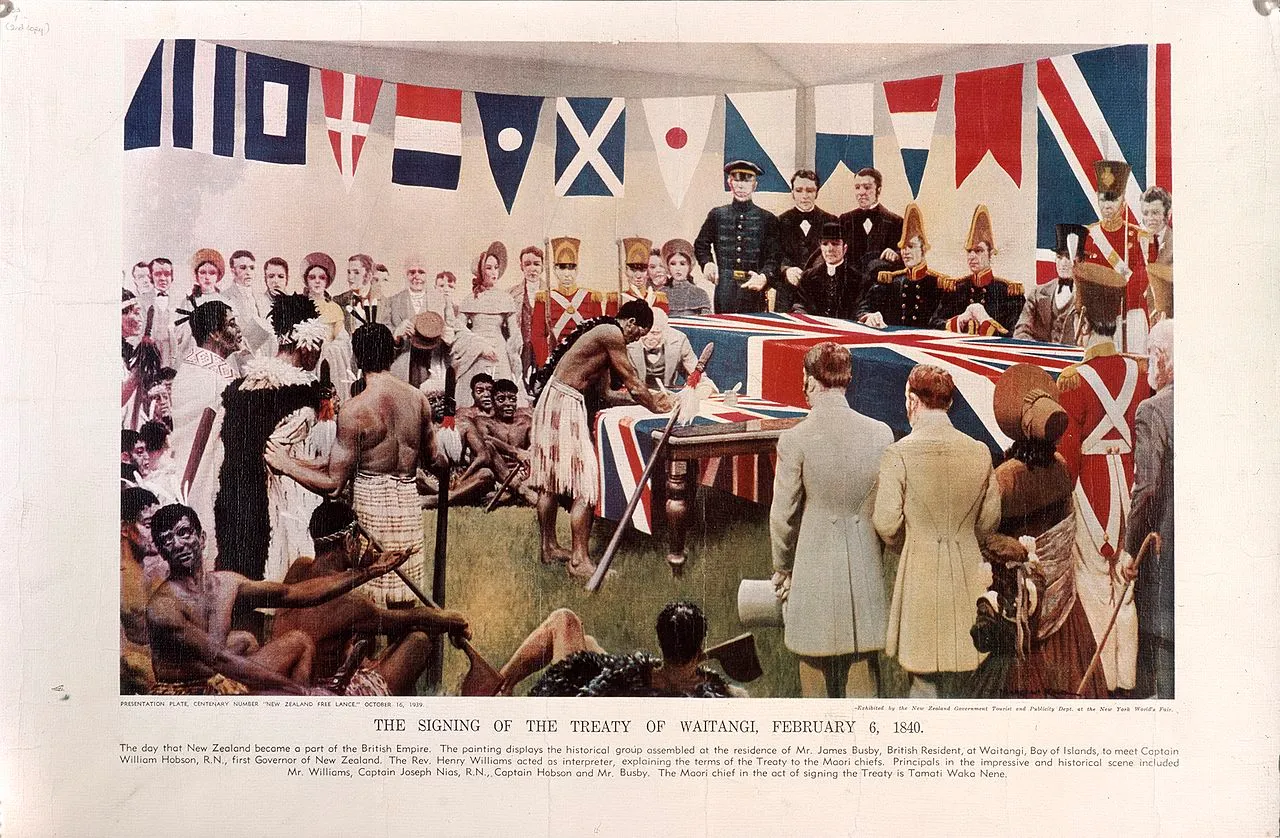Table of Contents
Tom O’Connor
MNZM, JP.
SEPARATISM
This is the fourth of a series of articles on inter-ethnic relationships in New Zealand in the early 21st century and the development of an informal duality of citizenship, the acceptance of that duality by community leaders and the long-term potential for dis-harmony.
An observation in cultural identity and social cohesion.
Treaty Partnership
In 1840 the Treaty of Waitangi was not a contract between two peoples Maori and Pakeha. It was a contract between some Maori and the Government of Britain (the Crown). In fact, non-Maori native-born New Zealanders were specifically excluded from involvement although Europeans (Pakeha) had been established in New Zealand for 50 years prior to 1840. (“Pakeha residents [who] were not allowed either to debate the text or to sign the document, except as witnesses, because it concerned only Maori relations with the British Crown”…Michael King; The Penguin History of New Zealand P158 2012.)
In recent times much has been said of treaty partnership between Maori and the Crown which is claimed to have been included in the treaty. However, there is in fact nothing in the English or Maori versions of the treaty to substantiate the concept that an ongoing permanent partnership in the sovereign governing of the country centrally or locally was ever contemplated by either side.
The British of the time had never agreed to share sovereignty with anyone over more than seven centuries of world-wide colonisation. Maori on the other hand simply wanted to manage their own affairs in their own way under their own rules leaving Pakeha to do the same but with one law for both.
The parties to a treaty or contract are not automatically partners thereafter unless such a partnership is specifically included in the treaty or contract and there is no such inclusion in the Treaty of Waitangi in the English or Maori versions. The concept of a permanent partnership between Maori and the Crown came from a misused comment by Justice Robin Cooke who said the 1987 “Lands Case against the Crown” signified a partnership between Pakeha and Maori requiring each other to act towards the other reasonably and with the utmost good faith.’ He clearly meant the Crown as there is and was no partnership with Pakeha who are not the Crown.
This flawed concept of a permanent partnership however has flowed on to local government where demands for co-management of natural resources and prior rights of consultation by some activists are accepted by ill-informed non-Maori who find it easier to appease such demands rather than challenge them for fear of being labelled racist.
In effect all Maori people originally asked for was to be treated the same as all other New Zealanders; to have their pre-1840 individual and tribal property rights recognised and protected as common law rights and to have the same freedom to manage their own affairs without interference as all other people.
Until three decades ago Maori have never asked to be treated as special or different; only that those things which properly belonged to them prior to 1840 should still be safe in their ownership after 1840. That reasonable and lawful expectation has been and still is denied them in many instances today. No other sector of New Zealand society would tolerate that imposition.
If it is accepted that there is a permanent partnership between Maori and the Crown, there arises two fundamental questions;
Who or what is the Crown in the context of the Treaty partnership?
It is commonly understood that the Crown, for legal and administrative purposes, is the legal embodiment of executive, legislative, and judicial governance for New Zealand headed jointly by the Prime Minister and the Governor General for formal events. The Crown does not include local government bodies or any other group.
If that is not the case there needs to be a clear definition provided by the Parliament.
There is also a question about the status of native-born non-Maori New Zealanders. Do Pakeha, as natives of New Zealand, also have equal rights of separate consultation and reserved seats on local authorities in a tripartite relationship with Maori and the Crown?
If not, are they to be uninvolved spectators and only in New Zealand, as has been suggested by the name Tangata Tiriti, by consent of Maori through the Treaty of Waitangi? Many Pakeha, my ancestors included, were in New Zealand well before the Treaty of Waitangi. Pakeha and the wider non-Maori community are not part of the Crown or even on the Crown side of the treaty partnership. They and other native born New Zealanders require no one’s permission to be here.
Who Was Wronged, Who Was to Blame, Who Pays the Bills?
It is interesting to note that Maori tribes were not the only people to have lands taken from them in the late 1800s. Several Pakeha individuals who had been given lands by Ngati Maniapoto and Ngati Mahuta in the Waikato many years prior to 1840 were dispossessed during the contrived land confiscations following the New Zealand Land Wars of 1860/70s. One of those men was later given compensation Crown land on the Kaipara Harbour.
Nor were Maori men the only signatories to the Treaty of Waitangi as natives of New Zealand. In addition to several Maori women who signed on behalf of their people, Joseph Thoms, an Englishman who had taken a daughter of Nohorua of Ngati Toarangatira as a wife, signed the treaty as a New Zealander in Port Underwood on the insistence of his father-in-law. There were many such Pakeha people who were accepted by Maori and Pakeha in those times to be landowners and natives in their own right.
With the land losses went social cohesion, tribal identity, self esteem and community vitality. It was a tried and proven method of colonisation and domination, which had been developed over several centuries and used by many nations. It was not, and is not, unique to New Zealand.
One only has to read the history of the Roman invasion of England in 43AD, the Spanish in South America in the 1500s or the history of the Celtic nations of today’s British Isles to find a mirror image of what happened in New Zealand, China, India, North America, Australia and Canada.
In all of those colonised countries, with the exception of America, armed resistance usually had catastrophic consequences for the local population. In New Zealand, after the disastrous Land Wars of the 1860s Maori leaders made a strategic decision to use British law rather than British muskets as a weapon against those who were dispossessing them. It took more than a century for the wrongs imposed on Maori, as British subjects, to be legally recognised and properly addressed.
Addressing those wrongs has created the impression, among some activists, that those who agreed to foot the bill were somehow also accepting culpability. The reality is that the compensation paid to Maori tribes for land (land was a tribal possession not an individual possession) and other losses could only ever be a token of the true value of what they lost and that many things which disappeared with the land could not be easily translated into European concepts, replaced or given a monetary value.
It also has to be remembered that, in the final analysis, while the New Zealand Government of today has accepted the role of meeting that cost on behalf of past British and New Zealand governments, it is New Zealand taxpayers, Maori and Pakeha together who pay all the bills.
Until it is accepted by the community at large, Maori and Pakeha alike, that the Treaty of Waitangi allowed the introduction of British law to New Zealand but it is today’s New Zealand statutes that evolved from British law which in turn protects the rights of all native New Zealanders without distinction, it will remain a divisive rather than a cohesive issue, shunned by many and ignored by most.
To be continued…








